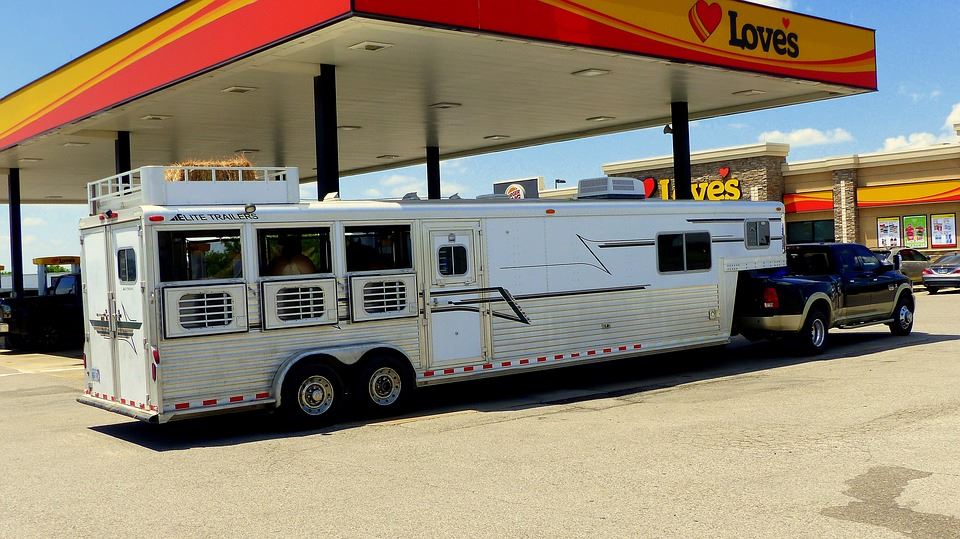For many horse owners, trailering a horse is a routine part of equine ownership. However, transporting a live animal shouldn’t be taken lightly. While some precautions aren’t necessary for short trips, they are advisable for longer jaunts.
By Sarah E. Coleman

It’s the time of year that some horse owners begin to think about heading South to continue competing and get more training where the weather is a bit more pleasant. While easy to get into the groove once they arrive at their destination, there is a bit of prep work to be done beforehand for both horse and transportation devices to ensure a safe trip.
While there are many things horse owners know they must do before loading a horse into a trailer (like checking tire pressure and that all the lights work), there are some things that get lost in the shuffle. The following guidelines can help ensure a safe journey:
- Make sure the horse has the right paperwork to cross state lines—and make it’s easily accessible (as in, put it in the truck). Additionally, open a conversation with your vet to be sure you have the right vaccinations on board for the disease threat your horse will be exposed to while he is away from his home farm.
- When stopping for fuel or to give your horse a rest, monitor your horse’s vital signs, including pulse and respiration rate, and have a quick peek at his gums or test his skin with the pinch test to be sure he’s not becoming dehydrated. Once you arrive at your destination, watch him carefully, checking these things as well as his temperature at least once a day.
- It goes without saying that you should have a well-stocked first-aid kit, but be sure it’s within reach should you need it in a hurry.
- While the length of time to travel before stopping and allowing horses to rest is highly debated, the average consensus seems to be that horses should be allowed to rest every 3 to 4 hours during transport for a minimum of 20 minutes.
- Consider carrying more than one spare tire and make sure that the spare, the aid to lift the trailer and any other tools are not so buried in the trailer that they can’t be easily reached.
- While dehydration is a major concern during transport, talk with your vet to determine if electrolyte supplementation is necessary; UC Davis reports that “excessive or uncontrolled administration of electrolytes may actually have an adverse effect on water and electrolyte balance in the horse.”
- An additional conversation to have with your vet is if a horse should be offered a medication to prevent ulcers prior to, during and immediately after shipping.
- Consider withholding grain the day of the trip (he will have loads of hay to nibble) to reduce the risk of colic.

Additionally, to lessen the chance your horse will get ill during transport, consider the following:
- Ensure the horse has the ability to lower his head while traveling so he can clear his airway
- Consider shipping with a buddy to make the trip less stressful
- Make sure the trailer is as ventilated as possible; however, windows should be opened or closed as weather indicates to keep the trailer at a comfortable temperature for the horse
